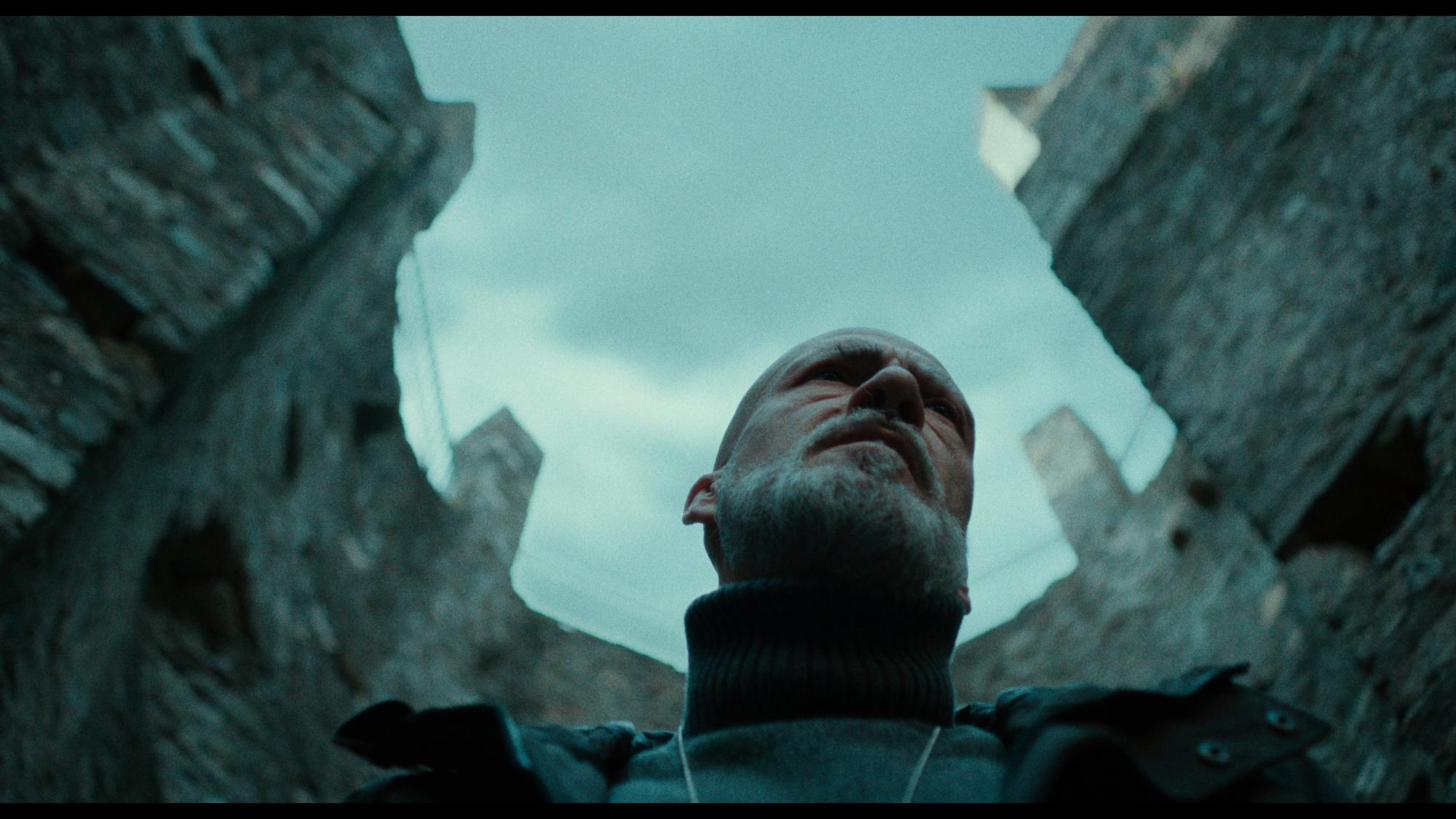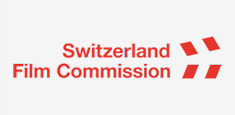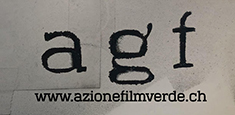"Alter Ego: our Nordic thriller set in Bellinzona".
On the eve of airing, directors Erik Bernasconi and Robert Ralston talk about the new TV series

Bellinzona, during Carnival. The body of a girl is found in a field just outside the town. For the investigation team led by Commissioner Blum, it is the start of a journey into a past full of shadows, where everyone wears a mask. This is how Alter Ego opens, a new detective series that, after recent previews at the GIFF - Geneva International Film Festival and at Castellinaria - Festival del cinema giovane in Giubiasco, makes its television debut on Tuesday 5 December, at 9.10 pm on RSI LA 1 with the first two of six episodes.
A writing phase that began in 2019. Eleven weeks of filming took place in the Bellinzona region between February and April this year. A large team, mostly from Ticino, consisting of over 80 industry professionals, more than 500 extras and around 50 actors. These are some of the numbers of the series, produced by Amka Films in co-production with RSI SSR SRG, supported by the Ticino Film Commission and under the patronage of the City of Bellinzona. The lead is the Italian actor Gian Marco Tognazzi, in a cast that includes well-known Swiss faces such as Anna Pieri Zürcher or Bruno Todeschini along with those from Ticino, such as Igor Horvat, Tatiana Winteler, Roberta Fossile, Margherita Coldesina, Jasmin Mattei or Max Zampetti to name but a few. Completely Made in Ticino, the series aims to cross the borders of Italian and national Switzerland: international sales rights have already been acquired by the independent French distributor Wild Bunch TV.
On the eve of the airing, we dive into Alter Ego together with the two directors of the series, Erik Bernasconi from Ticino (Sinestesia, Fuori mira) and Robert Ralston from Graubünden (Il demolitore di camper).
Let's start with the locations. How did you come to locate the ideal set in Bellinzona?
EB: "The various writing stages transformed the project and made the setting very important. Bellinzona became the right place for the story practically from the second stage of script development. There was also the possibility of setting the story in a small mountain village, but we discarded this option very quickly because some of the dynamics we were staging would have been difficult to imagine in such a small place. Bellinzona seemed perfect to us in terms of its size and because in its medieval citadel it also somehow encapsulates the idea of the thriller we were telling, that entrapment in certain psychological dynamics that lead to the unfolding of the plot. Then Bellinzona in itself has a very important element that I, coming from Bellinzona, love very much and which, with the spontaneity that evolving things have, has come to play its part: the carnival."
RR: "I didn't follow the genesis of the project in its various writing stages, I arrived once it was decided that the series would be filmed. The idea of the carnival was a bit strange to me at first, but Erik convinced me that this element would help us a lot. In fact, we are telling about a situation of external chaos mirrored in an internal chaos and those very strong contrasts were very useful to the story. I also think the choice of Bellinzona as a location works very well, for its size, for its castles, for the looming mountains around it. We shot in winter - even though you can't see it that much because it was always good weather (laughs, ed.) - and so there is that slightly gloomy atmosphere that we sought at all times and that suits the story as we imagined it."
It is the first series of this size and scope to be made entirely in Ticino. What was the biggest challenge?
RR: "The biggest challenge was the very little time we had to prepare everything. I'm not talking about the shooting but the moment when you get the OK and you have to figure out what you actually do with the script, how you translate it into images, where and who you work with. The big things you have to understand before shooting. That, in my opinion, was the most challenging phase. Then when you shoot, every day is a battle, but in the end it's about the little things. It depends so much on the collaborators you choose, and we were very lucky."
EB: "We had the wonderful opportunity to create a kind of dream team of Ticino film knowledge. Some of those who participated in Alter Ego are from Ticino but who live outside the canton, such as the director of photography Pietro Zuercher who is based in Lausanne. There were several from Ticino living in Zurich in his team, but they came back to make the series: such a large project is also attractive to those who have sought more stable working conditions elsewhere. They all seemed very happy to be back working at home. Of course, there were also those who live and work in our region and some who naturally came from outside: we combined all this knowledge with great satisfaction. I would like to add a general note by returning to the question of challenges. One of them was the huge amount of work, not only for us directors but for everyone, the production, the creative departments and so on. In practice it was as if we had made three films in the time - which is already tight - that one normally has to make two. This forced us to work very precisely and sometimes as fast as possible and make decisions very quickly. But we have been surrounded by a lot of passion and a lot of will on everyone's part. This is something we like to insist on."
Neither of you come from the thriller genre. How did you prepare for such a subject?
RR: "You have to understand the language of this genre. And if, as in this case, there are two directors, they need to understand each other, but we were very lucky in this. Of course we prepared ourselves, we watched a lot of noirs and thrillers. We wanted to use some elements that we liked and that could tell our story in the most powerful way. It was a matter of analysing other films, other series and our tastes, mixing everything and figuring out, together with the cinematographer, how to tell this story in the little time we had: when you have two hours to make a scene, you don't waste it."
EB: "I think it was fortunate for us to be on our first experience of thrillers, because we humbly put our ignorance on show. Robert and I started from the same level. We had identified the kind of thriller we wanted to make. There is a funny episode. At one point I was talking about one series and Robert about another, or so it seemed to us. I was referring to The Killing, a Danish series (of which an American remake was also made, ed.) and Robert was talking about Commissioner Lund. Our language difference meant that we did not immediately realise that we were talking about the same thing (laughs, ed.) because Commissioner Lund is none other than the protagonist of The Killing! So without knowing it we started from the same basis and the same tastes and that was crucial."
You mentioned The Killing, and indeed, Alter Ego has been compared by so many as a so-called Nordic noir. What elements in particular did you want to make this declination of the genre your own? Were you not concerned that Ticino would not immediately evoke that kind of atmosphere?
EB 'I think it's always easy to define the Ticino population as Mediterranean, but in reality, I don't think we are particularly so, we are Vallerani, we are Swiss. This is to say that I don't feel that people are so different. From the Nordic thriller we wanted to take first of all the way of representing the characters. In addition, we had to contend with a model that was not unachievable on paper. The Scandinavians manage through their skill to make great products without deploying the enormous means that the Americans do. We told ourselves that if we worked well, maybe we could also do what the Scandinavians do."
RR "What intrigued us was the use of the camera in an expressive way. The camera had to really help us get into the psychology of the characters, because that's what the Nordic productions do, they use the visual element to tell the inner state of the protagonists."
EB: "And also with a certain minimalism. The Characters - all human beings - experience great emotions, but there are certain ways of expressing them. The Nordic way, the one we were interested in, is that of small gestures that tell great emotion. I don't know if we succeeded, but that was the attempt. In the use of the camera, in the acting, in the relationship of the characters within the space, the idea was to achieve a subtlety that would tell something important. Then, well, in one day we had to bring home seven or eight minutes of footage and sometimes we forgot that subtlety, but we always tried!" (laughs, ed.)
FC






